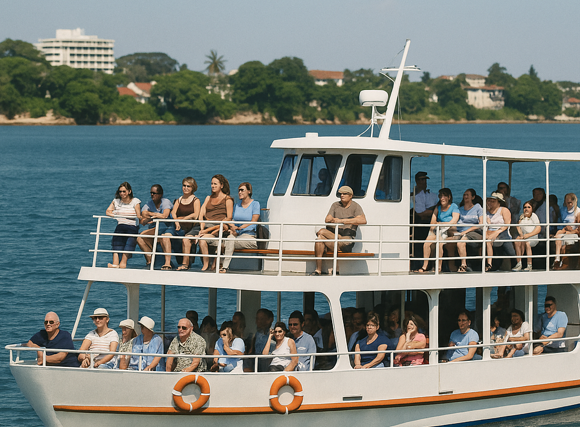
In the wake of this week’s disturbing incident where 50 youths accosted cruise passengers from the MV Crystal Symphony near Mombasa port, we must confront an uncomfortable reality: gang violence poses an existential threat to tourism-dependent economies.
The facts are alarming. Nearly 400 tourists and 475 crew members arrived from Seychelles en route to Zanzibar, only to have their visit marred by crime.
Fortunately, no physical injuries occurred, the psychological damage and subsequent cancellation of a visit to the Old Town represent significant economic harm.
This incident is not merely an isolated security failure but a symptom of a growing crisis with far-reaching implications for tourism-dependent regions: When cruise ships cancel port visits, local economies suffer catastrophic losses.
Consider the small business owners – the tour guides, restaurant staff, souvenir vendors and taxi drivers who depend on these visitors. For them, a cancelled ship visit isn’t simply lost revenue – it’s missed rent payments and children’s school fees that suddenly become unaffordable.
In tourism, perception is reality. Once a destination gains a reputation for being unsafe, reversing that impression takes years of concentrated effort and investment. y
Cruise lines make itinerary decisions months or years in advance, and security concerns can cause them to bypass affected ports indefinitely.
Today’s tourists immediately share their experiences online. One incident captured on smartphones and shared globally can undermine millions spent on marketing campaigns.
The 375 tourists from the Crystal Symphony have likely already shared their experience with thousands of potential visitors.
Effective tourism requires not just the absence of crime but visible, reassuring security that makes visitors feel protected.
Addressing this crisis requires a coordinated response.
First is an immediate security enhancement in tourist areas with visible policing.
Second, economic opportunities for at-risk youth who might otherwise join gangs.
Third, crisis management protocols for tourism authorities to respond effectively.
Fourth, community involvement in security initiatives, creating shared responsibility for visitor safety. Unless decisive action is taken, more cruise ships will sail past, more hotels will stand empty and more tourism workers will join the unemployed.
Andrew Mwangura is veteran merchant mariner











